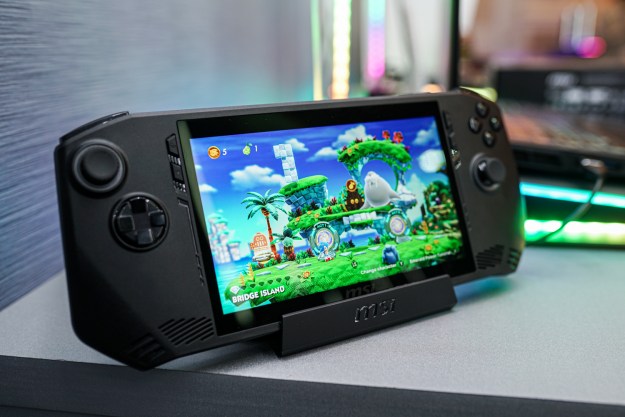
In simple terms, this technique works as a sort of disappearing act, one that can be especially useful when trying to get past region blocks for video content from major sites like Hulu, Netflix, YouTube, and iPlayer. But when it comes to weeding out the
In this week’s Decrypt This I’m putting three popular VPNs: HideMyAss, VyprVPN and Private Internet Access, to the test to help you figure out who’s really the best and who’s just a part of the rest.
Features
While normally it would be easy to spend an entire article breaking down the features from each individual VPN in the lineup bit by bit, in this case we’ve already done the hard work ahead of time.
Each of the three VPNs I’ll be testing today made it into the final draft because they all offer some of the best encryption methods and security measures around as a standard part of the package. No matter which way you go, you’ll be equally safe under a warm blanket of communication protocols including PPTP, L2TP, IPSEC, and OpenVPN.
What really matters when searching for the VPN that’s right for you is pretty much the same thing you look for when picking an ISP; “How fast can I get from here to there, and how much is it going to cost?”
Control
To start things off, I’ll be running a control test on a bare internet connection to see what kind of download rate, upload speed, and ping is achievable. This should allow for a stable baseline that can be referred to which will give us an idea of how good (or bad) a VPN service is by comparison.
All tests were run on a standard Arris TG862 Comcast router with embedded Wi-Fi, connected to a Speedtest.net server located in Seattle, Washington. Each test was started from a distance of about 20ft away on an Asus Nexus 7 tablet, and all three services were given three chances a piece to post the best result.

With no frills attached, the connection achieved a return of a 17 millisecond ping, 39.59 megabits per second download speed, and 12.36Mb/s upload. This is right in range of what was expected, and should prove as a lofty goal for the rest of these contenders to shoot for from here on out.
HideMyAss
If reliability, server diversity, and simplicity of use is what you’re looking for, then HideMyAss VPN is your service. One of the largest and most widely used VPNs around, the company has been taking advantage of the video streaming market to increase its level of operations and expand its reach to over 770 servers connecting in 150+ countries across the globe.

That said, its also one of the few that still keeps logs of user activities. While this sound innocuous enough on the surface, these records put the true privacy enthusiast at risk due to the fact that they can be requisitioned by a federal agency if they were ever so inclined.
But, even if it isn’t necessarily the best when it comes to keeping completely out of sight, the respectable download speeds and sumptuous server selection offered by HideMyAss helps offset any drawbacks for the average user.

On the closest server available in Seattle, this speed test posted a ping of 19ms, a download rate of 13.29 megabits per second and an upload of 11.95MB/s. While there was a drop from the control connection, it was never noticeable enough during regular browsing to raise cause for alarm.
As long as you aren’t too hung up on the idea of your data being stored in servers for analytics, HMA is a great way to get started with VPNs. Plans for HideMyAss start at $11.50 per month and scale down from there if you’re looking to buy in bulk.
VyprVPN
While it may not sport as many servers or users as HMA, VyprVPN’s defining feature is its cross-platform capabilities. The company has put a lot of work into making its mobile apps just as powerful and intuitive as its desktop solutions, and the streamlined, slick nature of their design means they won’t scare potential customers off with a complicated setup process or too much technical jargon.

Unfortunately, despite the dedication to making your mobile the most secure space in your life, Vypr’s speeds proved the slowest of these three choices.

Even its gorgeous UI couldn’t hide how far Vypr trailed the rest of the competition. With only 9.06 Mb/s download, a 67ms ping, and 11.10 Mb/s upload, the service simply couldn’t stand up on its own when pitted against the rest.
This said, of all the options we’ve posted here, VyprVPN was the only one to offer a three-day trial before you buy. After that, plans go for $8.33 per month if you buy a-la-carte, and slide down to $6.67 if you go the annual route instead.
Private Internet Access
If there’s one thing I like about the guys at Private Internet Access, it’s that what you see is what you get. The name says it all.

PIA is one of the best in the business at keeping your activities and traffic under wraps. The company stands by its promise to never record any data on its users, and they hold no archives or logs of connections coming in or out. The only info they have is what you give them when you sign up, and beyond that the rest is kept in privacy purgatory, right where I like it.

Of the two tests we’ve posted so far, PIA was easily one of the best. Despite multiple attempts, I could never get it to dip below the 15Mb/s mark, and on average was able to achieve 16.99Mb/s down, 11.85Mb/s up, and a ping of 48ms.
Not only was PIA the fastest service, but it was also the cheapest too. A 30-day plan will only set you back $6.50, and can be dropped all the way to just $3.33 if you grab a yearly subscription instead.
Wrap Up
If there’s anything we’ve learned during these tests, it’s that in the world of VPNs there may be a dozen different ways to skin a cat, but some just know how to do it a little bit quicker than the rest.
If server selection is the name of the game, HideMyAss has got your back. Want something that will be follow you wherever you go no matter which device is resting in your pocket? VyprVPN’s got an app for that.
But if I had to pick, Private Internet Access would get my dollar any day of the week. The service is the complete package, with a solid number of available servers sporting healthy connection speeds, apps that work across every major platform, and a privacy policy that puts the customer first, I can’t think of what else we’d want in a VPN that costs less than a carnitas burrito every month.
Editors' Recommendations
- DuckDuckGo’s Windows browser is here to protect your privacy
- DuckDuckGo’s new browser could help keep Mac users safe on the web


